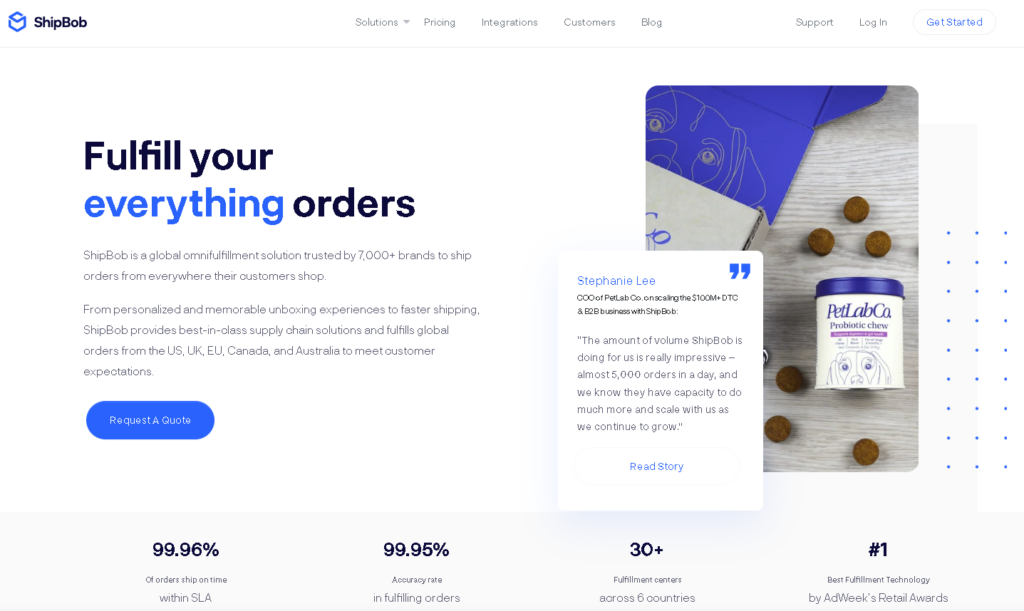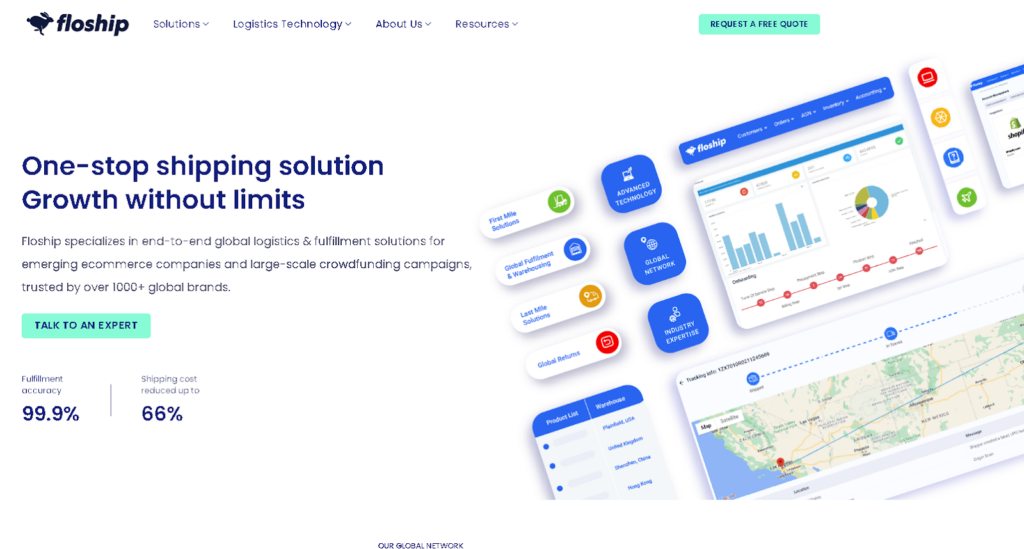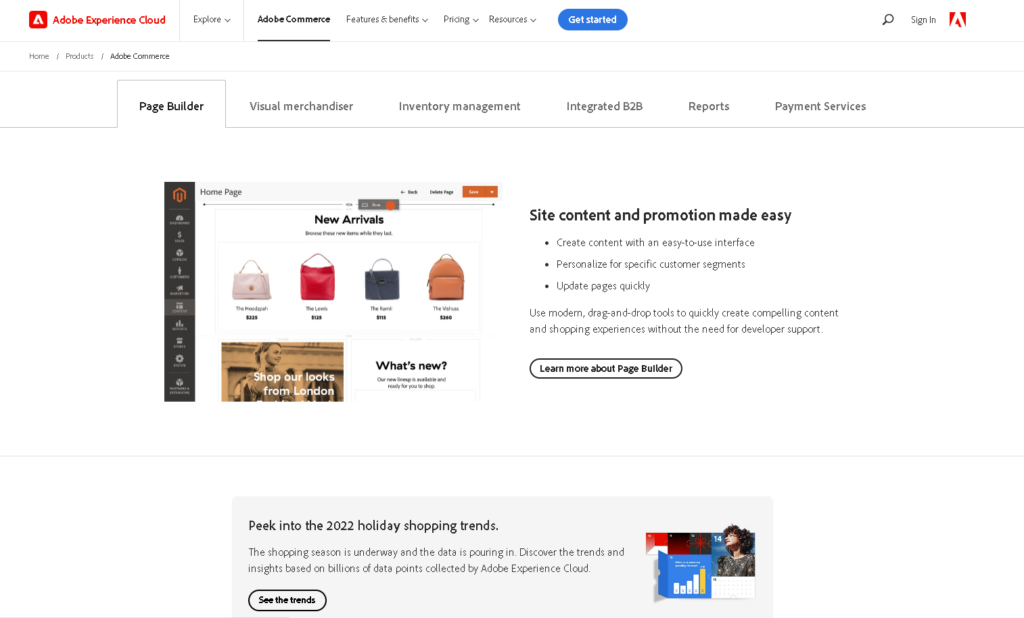Essential Platforms for any Ecommerce Business

For all eCommerce businesses, time is money, and every minute you spend unwisely is an opportunity cost. Because if your hands are full trying to stay afloat, you will miss out on market trends and product innovation opportunities that could leave your competition in the dust. Automating and streamlining monotonous tasks with the right platforms is more significant than ever.
Here are some benefits of using eCommerce platforms:
- Cost savings: With the right eCommerce platform, businesses can save on operational costs associated with hosting their storefront. Additionally, businesses may qualify for discounts when they sign up for an established provider.
- Increased reach: An effective and reliable platform enables businesses to increase their customer base by reaching a wider range of customers.
- Improved user experience: Professional eCommerce platforms are designed to provide a seamless, intuitive, and secure user experience for online shoppers. This helps increase customer satisfaction and loyalty.
- Scalability: eCommerce platforms provide a scalable infrastructure that can meet the needs of any business, from small startups to large enterprises. Additionally, they can also help expand your product line, add new features, offer promotions, and expand their product line or add new features with minimal effort.
- Advanced features: Established platforms come equipped with advanced features such as search engine optimization (SEO), payment gateways, mobile commerce, inventory management, and more. With these tools, businesses can optimize their online store for maximum efficiency and success.
There are countless eCommerce options available for all your business needs!
Team Communication Platforms
Whether you’re running an eCommerce business or a large multinational corporation, team communication can help establish efficient and effective communication between departments, teams, and individuals.
That’s where specialized team communication tools come in handy!
Why should you invest in these platforms?
- Increased Collaboration and efficiency: With eCommerce platforms, your team can collaborate more effectively than ever before. You can assign tasks to specific users, keep track of project progress, and stay connected even when working from different locations.
- Enhanced Productivity: According to a recent McKinsey report, effective team communication can increase productivity five times more. So it’s critical for the success of any business.
- Better Customer Service: eCommerce communication platforms enable your customer service staff to quickly and easily address customer concerns and complaints. This results in enhanced customer loyalty, leading to more sales and increased profitability for your business.
Now how do you pick the best communication platform?
Step 1: Determine what kinds of features and functions you need. Do you need a platform that can be designed for on-site or work-from-home communication? Do you need a platform that can be used for big or small teams? Do you need file-sharing or storage organization features? Consider all the features and functions that your specific business requires.
Step 2: Read reviews about eCommerce platforms from experts in the field. This can help narrow down your list of potential eCommerce platforms and give you more insights into which one might be best suited for your team’s needs. You can check out reputable sites such as G2, PC Mag, and GetApp to compare software and its features.
Step 3: Look at the different eCommerce platforms and compare them side-by-side. Consider factors like cost, customer service, security, scalability, and more. It’s also a good idea to look for eCommerce platforms with integrations to other tools that you might use regularly.
Step 4: Ask your team what they think about the eCommerce platform you are considering. Your team will be using these features as well and can give you a first-hand perspective on what they need to function optimally, and also bring up points that you may not have considered yet. Asking them what features will benefit them the most will give you valuable insights into which eCommerce platform is most user-friendly for your specific users.
Step 5: Test out the eCommerce platform before making any decisions. This will help ensure that it meets all your team communication needs and provide helpful feedback on how well it works.
Here are our top recommendations for you:
- Slack is an instant messaging platform that enables eCommerce teams to communicate in real-time. This platform offers features such as searchable conversations, file sharing, one-on-one calls, or group chats with audio or video calls. It also provides admin control over user access levels and channels to ensure security.
- Microsoft Teams allows eCommerce companies to collaborate remotely. It enables eCommerce teams to hold meetings, share files, and work on tasks together. The platform also allows eCommerce teams to create custom team channels for topics related to their eCommerce business.

- Zoom Cloud Meetings is a cloud-based video conferencing tool that eCommerce companies can use for online meetings. This platform allows eCommerce teams to host virtual events such as webinars and presentations. It comes with features such as screen sharing, recording and playback, whiteboard collaboration tools, and more.

Screenshot from Zoom’s website
- Basecamp provides eCommerce teams with project management solutions. It enables eCommerce businesses to manage projects from start to finish by creating tasks and assignments within timelines or due dates, setting reminders, and tracking progress.

- Trello is an online collaboration tool designed to help eCommerce teams work together. This platform allows eCommerce teams to create project boards and assign tasks, share files and documents, comment on projects, and more. Trello also provides eCommerce businesses with analytics tools that track project progress.
Warehouse & Fulfillment Platforms
Now that you’ve got your team ready, it’s time for warehouse and fulfillment matchmakers to get on the scene.
They provide essential support such as order processing, inventory management, shipping, and returns – all with the click of a button.
Here are other benefits of using warehouse and fulfillment matchmaking platforms:
- Optimize eCommerce investments: Warehouse & Fulfillment Matchmaking Platforms help eCommerce businesses to invest their resources optimally in the right eCommerce platforms.
- Improve customer experience: By integrating with eCommerce platforms, Warehouse & Fulfillment Matchmaking Platforms can improve the customer experience by allowing customers to track shipments and get real-time updates on orders.
- Streamline operations: Warehouse & Fulfillment Matchmaking Platforms can streamline overall operations and reduce time spent on manual tasks.
- Increase efficiency: Automation capabilities offered by Warehouse & Fulfillment Matchmaking Platforms help increase efficiency by automating mundane tasks and providing better visibility into order processing.
- Reduce costs: These platforms can also help utilize the most cost-efficient fulfillment solutions, resulting in significant savings on shipping and storage costs.
Now that you know its value, here is a guide to finding the right one for your eCommerce business:
Step 1: Define Your eCommerce Needs. Before making any decisions, take the time to understand what eCommerce features and functionalities your business needs. Do you need payment processing capabilities? Inventory management tools? Tax compliance solutions? Having a clear understanding of exactly what you need.
Step 2: Research eCommerce Platforms. Take some time to research various eCommerce platforms online that fit your needs and budget. Look at reviews from other businesses that use eCommerce software, compare pricing models and features offered by each platform, assess scalability, and identify which ones have experienced customer service teams available.
Step 3: Try Out eCommerce Platforms. If possible, it’s always recommended to test eCommerce platforms before signing up. Many eCommerce software providers offer free trials or demos, so take advantage of these to ensure that the eCommerce platform you’re considering meets all of your expectations and can handle the needs of your eCommerce business.
By following these steps, you can rest assured that you’re selecting the right Warehouse & Fulfillment Matchmaking Platforms for your eCommerce business. This will help ensure you stay ahead of the competition in this ever-changing eCommerce industry.
Popular Warehouse & Fulfillment Matchmaking Platforms in the eCommerce space include the following:
- Warehousing and Fulfillment connects customers with top-quality companies that meet their needs based on geography, technology, types of services offered, etc. This service is free to customers, with WarehousingFulfillment.com charging a small lead fee of $30 to the companies it connects customers with. Plus, this online service offers a no-spam guarantee.

- ShipBob is an eCommerce fulfillment provider specializing in helping eCommerce businesses fulfill orders quickly and cost-effectively. The platform offers fast shipping times, advanced inventory tracking tools, and flexible pricing plans to meet the unique needs of any business.

- Floship is another eCommerce fulfillment provider that offers comprehensive eCommerce services such as shipping, inventory tracking, order fulfillment, eCommerce returns management, and more.

Recruitment Platforms
Creating a successful eCommerce business requires more than just setting up a website. Because access to the right talent is an essential ingredient for success. That’s why investing in eCommerce recruitment platforms can be invaluable for small and large businesses.
eCommerce recruitment platforms are designed to help business owners quickly and efficiently find reliable eCommerce professionals. eCommerce recruitment platforms make it easier to source the best eCommerce talent from a variety of sources, including both local and international job boards or through one-on-one networking.
Here are more of the benefits you get if you invest in a recruitment platform:
- Increased Efficiency: eCommerce recruitment platforms provide streamlined, efficient ways for businesses to manage their recruitment and hiring processes. This reduces the amount of time spent on manual tasks such as sifting through resumes and filling out job applications.
- Cost Savings: eCommerce recruitment platforms can help save costs by automating the process of sourcing and recruiting candidates who are the best fit for their eCommerce openings.
- Improved Candidate Engagement: eCommerce recruitment platforms enable eCommerce businesses to engage with potential candidates quickly, allowing them to build relationships that can potentially lead to successful hires in the future.
- Better Talent Pooling: eCommerce recruitment platforms allow eCommerce businesses to access a larger talent pool and source the best candidates for their eCommerce openings.
- Scalability: Recruitment platforms allow eCommerce businesses to scale up or down depending on their needs. This helps save costs by only hiring the necessary number of personnel.
Here’s a step-by-step guide to finding the right platform for your business:
Step 1: Define what kind of eCommerce roles you need to fill. Are you looking for a platform that offers many different job postings? Or do you need a more niche-focused recruitment platform? Ask yourself probing questions.
Step 2: Research eCommerce recruitment platforms and compare their offerings. Look at the features, such as job boards, recruitment tools, data analytics, recruiting software, and other services they offer. Compare these to determine which fits your business needs.
Step 3: Consider what type of support the platform provides. Do they offer customer service or technical support? Additionally, does the eCommerce recruitment platform offer additional services such as training programs, job posting advice, or eCommerce market research?
Step 4: Consider cost. Compare prices for different eCommerce recruitment platforms and make sure you’re getting value for your money. You should also check for any hidden fees associated with using their eCommerce recruitment platform.
Here are some of the most popular eCommerce recruitment platforms include:
- LinkedIn Recruiter is a powerful eCommerce-specific recruiting tool that allows companies to engage with potential applicants, manage hiring processes, and access a rich pool of eCommerce talent.

- Jobvite is a comprehensive platform that offers effective sourcing options, automated resume screening capabilities, and streamlined collaboration between recruiters and hiring teams.

- Glassdoor provides eCommerce employers with an expansive database of qualified professionals and robust analytics that can help inform smarter hiring decisions. It also includes an employer branding suite, which businesses can use to promote their job openings and attract top talent.

- Dice is a recruitment platform that offers an extensive library of resources and co-branded job postings. It also provides access to a large pool of eCommerce professionals with specialized skills.
These recruitment platforms offer eCommerce companies the ability to find high-quality candidates quickly and efficiently, making them valuable tools for growing businesses. By leveraging these platforms, employers can create more effective hiring processes, resulting in a higher success rate in finding the right person for the job.
Web Hosting Platforms
A web hosting platform is another tool that plays a crucial role in eCommerce businesses. They provide the necessary infrastructure that enables sites to run smoothly and securely.
With the right platform, you can optimize your website’s performance and create an enjoyable user experience.
Here are just some more of the reasons why you should start considering a web hosting platform of your own:
- Faster website speed: eCommerce platforms offer hosting solutions that are specifically optimized for eCommerce websites, ensuring fast loading speeds of your web pages.
- Increased scalability: eCommerce platforms can easily be scaled up or down to meet the changing needs of a business as it grows and evolves.
- Improved storage capacity: These platforms also allow businesses to store larger amounts of data, images, and other media files, making it easier to manage large inventories.
- Enhanced security: eCommerce platform hosting provides enhanced security features such as encryption, secure sockets layer (SSL) certificates, and more to help protect customer information from malicious attacks.
- Easy integration with third-party applications: eCommerce platforms offer easy integration with third-party applications, making it easier for businesses to take advantage of eCommerce tools and services.
- Enhanced customer experience: These platforms help businesses create a seamless user experience by providing features such as a one-page checkout process, order tracking, and more.
- Robust analytics: eCommerce platform hosting offers powerful analytics tools to track website performance and visitor behavior, allowing businesses to make informed decisions about their eCommerce strategy.
Here are the steps to selecting your web hosting platform:
Step 1: Identify eCommerce Platform Requirements: Specifying the eCommerce platform requirements for your business is the first step in selecting the right eCommerce hosting solution. Consider factors such as cost, scalability, reliability, security, and compatibility with existing systems.
Step 2: Research eCommerce Hosting Solutions: Once you have identified your platform requirements, research available eCommerce hosting solutions that match those needs. Compare features and pricing between different providers to determine the best fit for your organization or project.
Step 3: Assess Security Features: Assessing the security features of eCommerce hosting providers is essential to protect customers’ data and ensure compliance with laws and regulations related to industry-specific standards (e.g., HIPAA). Determine what security measures are in place and how they are monitored.
Step 4: Evaluate eCommerce Platforms: Select hosting platforms based on features such as payment gateway support, shopping cart integration, database access, analytics capabilities, customer service options, email marketing tools, and other software integrations.
Step 5: Consider Uptime & Performance Parameters: When selecting an eCommerce hosting provider, it is important to consider factors such as uptime guarantees, server performance, and technical support for outages or downtimes.
Step 6: Analyze Pricing & Payment Options: Compare pricing between eCommerce hosting providers to determine the best value for your organization or project. Evaluate payment models (e.g., monthly vs. annual).
Here are our suggestions:
- Shopify is a comprehensive eCommerce solution that enables businesses to launch an online store with ease. It offers various features to help customize your store and make it appealing to customers.

- BigCommerce is another eCommerce platform that offers a wide range of features and tools to help businesses build an eCommerce website. It also has several integrations with third-party services, such as payment processors, shipping carriers, and more.
- Adobe eCommerce is an eCommerce solution that enables businesses to create an online store in minutes. Its intuitive user interface allows you to easily customize and manage your eCommerce store.

- Wix eCommerce is a powerful eCommerce solution that offers an array of features to help businesses build an eCommerce website quickly and easily.

- WooCommerce is designed specifically for WordPress users. It’s easy to use, highly customizable and has many features.
All five eCommerce platforms offer businesses the ability to manage their stores with ease, so it’s worth researching each one to see which is best for your business.
Payment Platforms
Don’t forget that last but one of the most important platforms your eCommerce business needs.
Payment platforms enable customers to make secure payments quickly and easily.
E-commerce businesses have a variety of payment options available, from traditional credit cards to more modern e-wallets and mobile payment methods.
Depending on the specific platform used by the business, it is important to choose the right payment providers that offer comprehensive security measures and convenient checkout solutions for customers.
For eCommerce websites built on popular eCommerce platforms like Shopify or Magento, there are typically integrated solutions such as PayPal, Stripe, or Amazon Payments that can be enabled with just a few clicks.
These services provide easy-to-implement APIs which allow merchants to integrate their eCommerce website with external payment providers easily. Additionally, eCommerce businesses can choose to add more payment options such as Apple Pay, Google Wallet, or Bitcoin.
To keep customers secure and compliant with the Payment Card Industry Data Security Standard (PCI-DSS), eCommerce businesses should ensure that they use a PCI-compliant payment gateway – a vital requirement for any eCommerce business dealing with credit card information securely.
By using payment platforms, you get these benefits and more:
- Easier and faster payment processing: eCommerce platforms make it easy for businesses to process payments quickly, allowing them to offer customers a secure checkout experience.
- Lower transaction costs: eCommerce payment platforms help businesses save money on transaction fees by eliminating the need for third-party payment processors.
- Increased customer loyalty: eCommerce platforms provide customers with an enhanced shopping experience, which can lead to increased loyalty and repeat purchases.
- Improved security measures: eCommerce payment platforms use advanced encryption methods and other security measures to protect customer data from malicious attacks.
- Reduced fraud risk: eCommerce payment platforms incorporate sophisticated fraud detection systems that identify suspicious activity and alert business owners in real-time.
Choosing the right eCommerce Payment Platform is an important decision for eCommerce business owners. Not only will it determine how their customers pay for goods and services, but it will also have a major impact on the success of their eCommerce venture.
In this step-by-step guide, we’ll provide some tips to help you select the best eCommerce Payment Platforms for your business needs.
Step 1: Identify Your Requirements. Before selecting a payment platform, eCommerce business owners should identify what their requirements are. Do they need a platform that supports multiple currencies? A system with fraud protection or recurring billing capabilities? Knowing your specific needs can help narrow down the list of possible options.
Step 2: Consider Fees. The cost of the eCommerce Payment Platform should also be taken into consideration. Many platforms charge monthly fees, transaction fees, and additional charges for certain services. Knowing what you’re willing to pay will help you refine your options further.
Step 3: Read Reviews. With so many eCommerce Payment Platforms available today, performing a thorough review is essential. Check out customer reviews across multiple websites and social media accounts to get an idea of how well the platform performs in real-life scenarios.
Step 4: Test Drive Platforms. Once you have narrowed down your list of potential eCommerce Payment Platforms, it’s time to test them out. Most eCommerce businesses offer free or discounted trial periods, allowing customers to try the platform before committing to a full subscription.
Researching and evaluating payment platforms can help ensure that your customers have a smooth checkout experience. Here are a few examples of excellent payment platforms:
- Shopify is a great option for business owners looking for an all-in-one eCommerce solution. It offers a simple setup process, a user-friendly interface, and mobile-friendly themes. It also provides powerful marketing tools that can increase sales with minimal effort.
- BigCommerce offers many of the same features as Shopify but with more customization options to fit specific needs. It provides over 100 fully customizable themes, eCommerce analytics, and integrations with services like QuickBooks or Amazon.
- Adobe Commerce is a popular platform for businesses that require more flexibility. It offers features such as multi-store capabilities, custom layouts, and extensive APIs to help businesses grow.
- WooCommerce is an eCommerce plugin for WordPress websites that provides users with powerful eCommerce tools without any coding experience needed. With WooCommerce, users can quickly start selling online by simply setting up their store on their website.
- Squarespace is an eCommerce platform that allows businesses to create beautiful online stores using its drag-and-drop builder. It also comes with built-in marketing tools, mobile optimization, and payment processing options making it perfect for small to medium-sized eCommerce businesses.
Conclusion
Let’s recap the important platforms you should start using to get the best out of your eCommerce business:
- Team Communication Platforms enable businesses to connect, collaborate and communicate with customers, employees, and partners.
- Warehouse and fulfillment matchmaking platforms provide eCommerce businesses access an extensive network of warehouses and fulfillment centers, allowing them to optimize order fulfillment speeds, accuracy, and cost-effectiveness.
- Recruitment platforms are eCommerce solutions that enable businesses to streamline their recruitment process by connecting them with job seekers, simplifying the job discovery and application process, and providing hiring, onboarding, and tracking performance tools.
- Web Hosting Platforms enable businesses to securely and reliably host their websites, providing tools for building and managing content, configuring settings, monitoring performance and security, and more.
- Payment Platforms enable businesses to process payments securely and manage transactions, providing tools for accepting various payment methods, verifying customer identity, monitoring fraud activity, and more.
As eCommerce continues to grow and evolve, eCommerce platforms are the cornerstone of success. Whether it’s a simple e-store or an enterprise eCommerce platform, the right choice can make a big difference in your business.
Make sure to share this with your team – just like yours, their time is gold, and it’s best to put the time they have to good use.